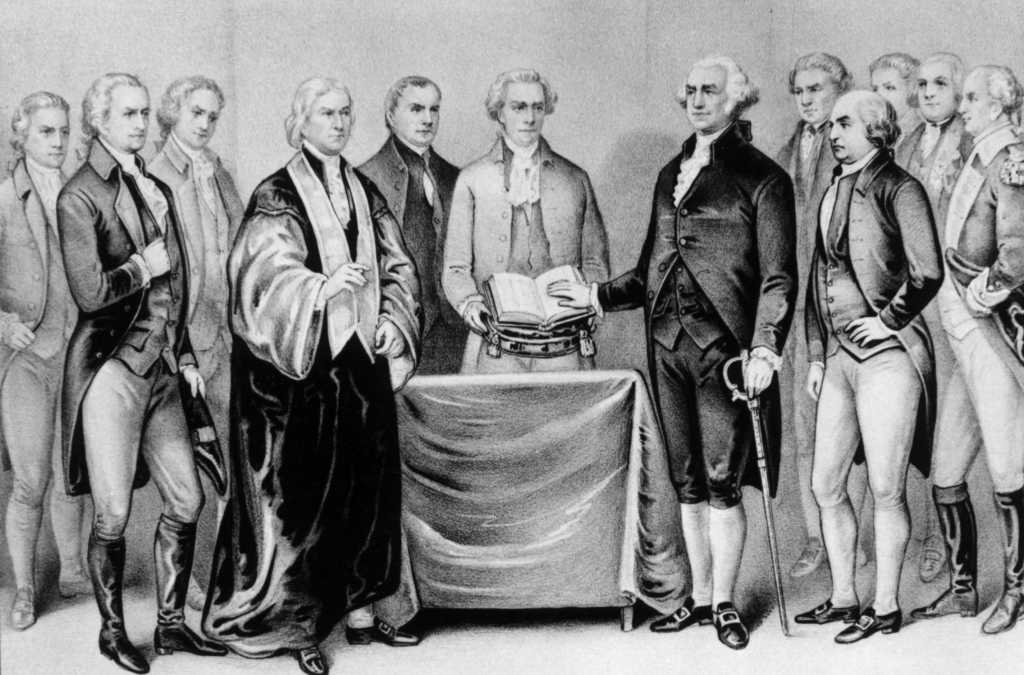As the Senate debate over federal Judge Neil M. Gorsuch heats up, it’s important to remember something about these intense and divisive Supreme Court showdowns: they’re almost as old as the republic itself.
Let’s dive into a brief history lesson: Around 222 years ago, George Washington saw his own choice for chief justice rejected by the Senate, proving that the ideological battles that rage today aren’t all that different from the political spats of centuries past.
That in mind, it’s no surprise that intense partisan debate surrounds Gorsuch, though much of that consternation is likely more predicated upon ever-controversial commander-in-chief Donald Trump than it is Gorsuch himself.
Either way, it was almost a sure-fire reality that intense partisan squabbling would follow Justice Antonin Scalia’s February 2016 death — and it played out as such. First, Republicans halted former President Barack Obama’s nomination of Merrick Garland for Scalia’s seat. Now, Democrats are threatening to try and do the same to Gorsuch.
The Associated Press resurrected the important Washington history lesson this week to show just how tough the political scene can get when it comes to Supreme Court dramas. And, really, there’s nothing new under the Senate sun.
Let’s take a more specific look at Washington’s devastating Supreme Court defeat.
It all started when John Rutledge — one of the drafters of the Constitution — served as a Supreme Court justice for a few years starting in 1789. He then resigned for the chief justice role in South Carolina’s judicial system. Just a few years later, though, Washington nominated him to replace chief justice John Jay, but things didn’t go so well, the AP reported.
“On December 15, 1795, the Senate administered a stinging blow to one of the nation’s most distinguished ‘founding fathers,'” reads a primer published on the U.S. Senate website. “By a vote of 10 to 14, it rejected President George Washington’s nomination of South Carolina’s John Rutledge to be Chief Justice of the United States.”
There were reportedly a few issues that led to his defeat. Rutledge opposed the Jay Treaty, which was aimed at easing tensions between the U.S. and England. He reportedly delivered a tough speech attacking that agreement for being “excessively pro-British.” The problem? The treaty was supported by both Washington and the Senate.
And just so there’s no confusion over how much Rutledge disliked the treaty, consider that he said “he had rather the president should die than sign that puerile instrument — and that he preferred war to an adoption of it,” Politico reported.
Rutledge also believed Congress should play a role in appointments to the high court, according to the AP. In the end, the Senate rejected him, which set an important precedent, as the Senate website noted: “In turning down Rutledge, the Senate made it clear that an examination of a nominee’s qualifications would include his political views.”
In the end, Rutledge reportedly took the act of rejection pretty hard, withdrawing from public life and attempting suicide by jumping into Charleston Harbor on Dec. 26, 1975; he later died in 1800.
So, all that to say, the current debate over Gorsuch is par for the historical course, with Democrats threatening to filibuster to try and stop his confirmation and with Republicans pledging to change the Senate rules of that happens in order to ensure that a simply majority vote would bring Gorsuch the support he needs to be installed as a justice, the AP reported.
—
Other Must-Read Stories:



